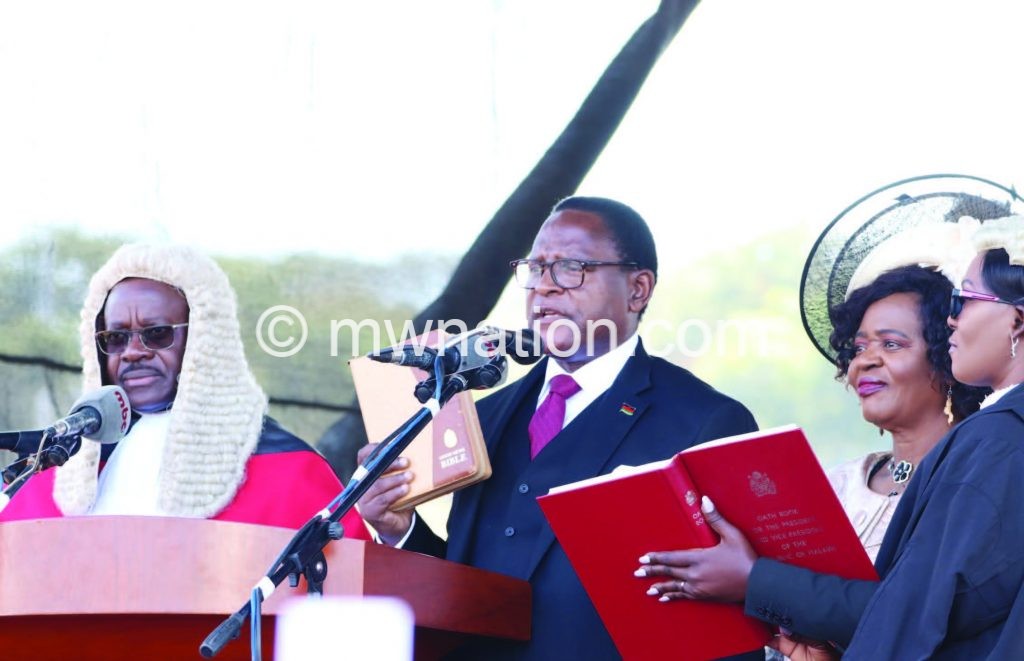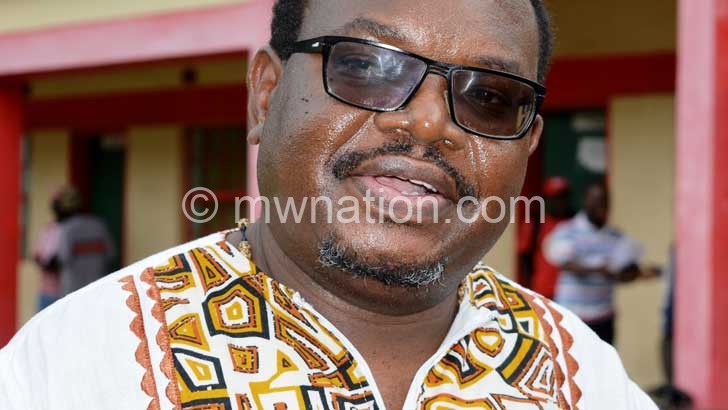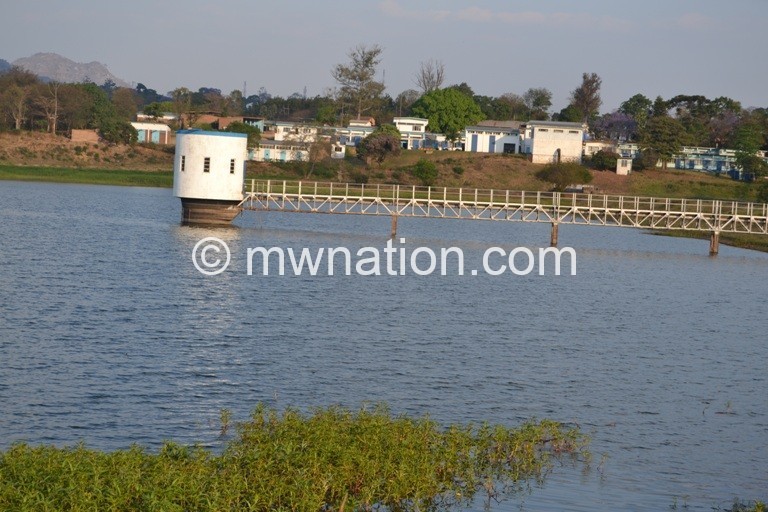Fresh attempt at Electoral Reforms
The National Task Force on Electoral Reforms has submitted four proposed electoral law amendments to Ministry of Justice, including swearing in the President-elect after 30 days and making polling day a public holiday.
The task force comprising Malawi Electoral Commission (MEC) and non-governmental organisation Centre for Multiparty Democracy (CMD), has drafted about 30 electoral law amendment proposals.

It has also proposed a reduction in the voting time from the current 12 hours running from 6am to 6pm to one that starts at 6am and closing at 3pm.
Other proposed reforms include the scrapping of the 60-day official campaign period, fixing the holding of by-elections to quarterly basis and that constituency boundaries review should be conducted after 10 years instead of the current five years.
Unveiling the proposals during a press conference in Lilongwe yesterday after presenting four amendment proposals to the Ministry of Justice, CMD executive director Kizito Tenthani said the four are Constitution (Amendment) Bill, Electoral Commission Act (Amendment)
Bill, Presidential, Parliamentary and Local Government Elections (Amendment) Bill and Assumption to the Office of the President (Transitional Arrangements) Bill.

Currently, Section 81(3) of the Constitution says that a President-elect should be sworn in after seven days from voting, but that will change if the Bills are adopted by Parliament.
Reading a briefing note on the proposed reforms, Tenthani said: “On 30th September 2020, an amendment to the Constitution was passed that provides that the President shall not be sworn into office until after the expiry of seven days, but before the expiry of 30 days.
“In the current submission, it is proposed that an amendment be introduced to require that the President-elect should be sworn in after 30 days.”
He said the task force considered that delaying administration of the oath of office would help electoral authorities address all complaints and also allow proper handover between the outgoing and incoming President.
On polling day, the task force is proposing an amendment to Section 78 of the Parliamentary and Presidential Elections (PPE) Act and submits: “The proposal is that polling day should be a public holiday and that polling shall start at 6am and close at 3pm.”
Tenthani said reducing the time of voting will ensure that polling centres process the results and submit them before darkness falls. He said the proposal was made in the light of the fact that some centres struggle with lighting.
During the briefing, the task force dismissed suggestions that cutting the voting period from 12 hours may affect some voters, arguing that after being declared a public holiday, many registered voters would be free to vote within the stipulated hours.
Currently, Section 52 of the PPE Act provides that the period of official campaign is 60 days, ending 48 hours before the start of polling, but the task force is proposing that this arrangement be scrapped as aspirants start campaign way before the stated period.
Reads the briefing note: “The first position is that considering the realities on the ground, it is pointless to have an official campaign period.
“Thus, it is proposed that campaigns should run throughout the electoral cycle and close 48 hours before the opening of polls.”
On when the task force expects the proposals to be tabled in Parliament for approval, MEC commissioner Olivia Liwewe said the processes were now beyond the team.
She said: “They [proposed Bills] have to go through the Ministry of Justice, presented to Cabinet and taken to Parliament. We pray that they will be able to do this quickly.
“The minister [Titus Mvalo] has assured us that he will prioritise these draft bills in processing all the bills they have on their table.”
In an interview yesterday, Ministry of Justice spokesperson Pirirani Masanjala could not indicate when the electoral reforms Bills will be ripe for debate in the National Assembly.
He said: “The question of ‘when’ cannot at this moment be answered. The Ministry of Justice will need to review the Law Commission report and incorporate the proposals from this task team. What they submitted today are not Bills. They are proposals from MEC and civil society organisations to be taken on board as we draft electoral reform Bills.”
The governing Tonse Alliance key partner Malawi Congress Party (MCP) spokesperson Maurice Munthali said they will support the electoral reforms if there “is an assurance that they are a result of extensive and comprehensive research and they speak to the aspirations of the nation”.
But United Democratic Front chief whip in Parliament Ned Poya opposed proposals to declare voting day a public holiday, arguing that it would affect the country’s economy. He also said the 30-day wait for the President-elect to take office was tricky.
He said: “The proposal to wait for a month to swear in the president can stir unnecessary tension. Stability mostly comes after the President takes office. Nonetheless, our party will wait until the Bills are presented then we will take a stand on the reforms.”
Political analyst Mustapha Hussein, who teaches at the University of Malawi, described the proposals as crucial in ensuring that the polls are administered efficiently.
He said: “Delaying the swearing in of the President will give room to clear major disputes and this will legitimise the presidency.
In recent years, electoral reforms have stirred controversy in the country.
In December 2018, Parliament rejected proposed reforms championed by the quasi-religious grouping Public Affairs Committee which sought to make changes, including on the period of processing and declaring of results and swearing in of the President-elect.
In March 2020, former president Peter Mutharika refused to sign into law proposed reforms to facilitate the court-sanctioned fresh presidential election after the nullification of his May 21 2019 victory over irregularities in the results management system. declare voting day a public holiday, arguing that it would affect the country’s economy. He also said the 30-day wait for the President-elect to take office was tricky.
He said: “The proposal to wait for a month to swear in the president can stir unnecessary tension. Stability mostly comes after the President takes office. Nonetheless, our party will wait until the Bills are presented then we will take a stand on the reforms.”
Political analyst Mustapha Hussein, who teaches at the University of Malawi, described the proposals as crucial in ensuring that the polls are administered efficiently.
He said: “Delaying the swearing in of the President will give room to clear major disputes and this will legitimise the presidency.
In recent years, electoral reforms have stirred controversy in the country.
In December 2018, Parliament rejected proposed reforms championed by the quasi-religious grouping Public Affairs Committee which sought to make changes, including on the period of processing and declaring of results and swearing in of the President-elect.
In March 2020, former president Peter Mutharika refused to sign into law proposed reforms to facilitate the court-sanctioned fresh presidential election after the nullification of his May 21 2019 victory over irregularities in the results management system.





